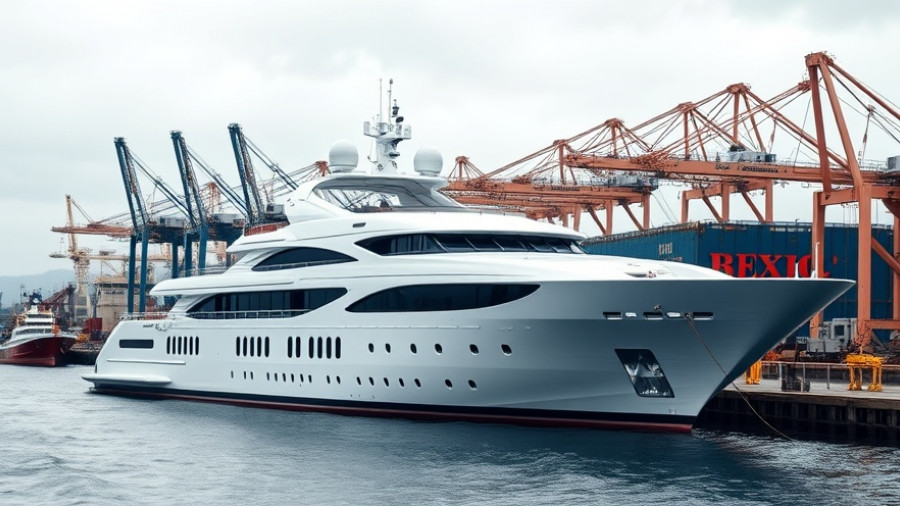
Is the Lavish Lifestyle of Superyachts Sustainable?
With the prevalence of superyachts growing at an unprecedented rate, questions surrounding their impact on the environment have become unavoidable. Recently, a viral TikTok video highlighted the staggering costs associated with maintaining a $200 million megayacht, the Atessa V, which showcases not only the excess but also the environmental implications of such luxury. The video's creator warned viewers about the exorbitant monthly running costs, which can surpass $2 million, a mere drop in the ocean for the yacht's billionaire owner, Dennis Washington.
Exploring Environmental Costs
Superyachts like the Atessa V are known for their opulent amenities, including a swimming pool and luxurious cabins. However, they also contribute significantly to carbon emissions, with Oxfam reporting that the world’s wealthiest 1% produce 300 times more carbon emissions than the average person. These massive vessels are notorious for their inefficiency, often operating at lower speeds and relying extensively on generators, which further exacerbates their emission output.
Community Reactions: The Tired World
The global response to these lifestyles has been increasingly critical. Comments beneath the viral video ranged from shock to outrage, with many calling for the ultra-rich to be held accountable for their environmental footprints. The consensus among viewers is clear: "The world is getting tired" of witnessing such extreme wealth that comes at the cost of environmental degradation. These sentiments reflect a growing awareness and concern about climate impact, particularly among outdoor enthusiasts who are deeply connected to the natural world and aim to protect it.
Possible Solutions and Innovations
As awareness grows, so does the push for sustainable practices within the superyacht industry. Experts suggest that adopting green technologies, such as solar panels and electric propulsion systems, could significantly cut emissions. There is a growing movement among millennials and younger generations advocating for eco-friendly upgrades. With 40% of millennials expressing concern about environmental impacts, we may see a shift in industry standards as demand for less harmful luxury travel options increases.
Taxation: A Potential Path Forward
To combat the severe implications of carbon pollution sky-high private travel incurs, experts and activists are championing heavier taxes on superyachts and private jets. By taxing these forms of extreme luxury, governments could not only reduce their use but also generate significant funds for climate initiatives. Oxfam estimates taxing superyachts could raise up to £2 billion annually for climate action, emphasizing the notion that the wealthy should bear the brunt of climate responsibility.
Final Thoughts
As we look towards a more sustainable future, adopting environmentally friendly practices isn't just a luxury for the wealthy; it’s a necessity for our planet's survival. The narrative of generational wealth sustaining luxury lifestyles while others suffer the consequences of climate change must shift. The path to a sustainable future is ripe for exploration, and those capable of making changes must lead the way. It’s time for action, awareness, and a commitment to preserving our planet for future generations.
 Add Row
Add Row  Add
Add 




Write A Comment